A Sustainable Future for Gaza
This session will focus on the prospects for Gaza’s reconstruction and rehabilitation, exploring models of sustainable development that align with international principles and avoid reinforcing existing power imbalances. Panelists will discuss how a livable environment in Gaza may be created, while addressing long-term political and economic challenges. The panel will also shed light on Hamas, its culpability for the current moment, and the obstacles it presents for the future.
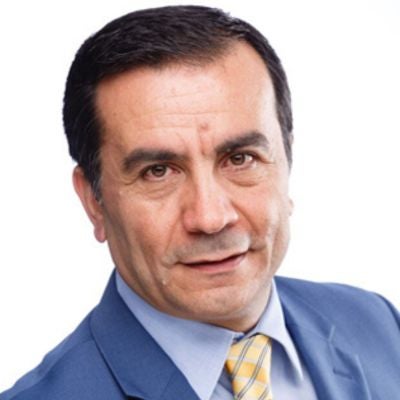
Khalid Al Hroub
Khaled AL-Hroub is a Professor in residence of the faculty of liberal arts at Northwestern University in Qatar. His focus is Middle Eastern studies and politics with particular interest on Islam and politics, Arab-Israeli conflict and Arab media studies. He was a Research Associate at the Centre of Islamic Studies of the Faculty of Asian and Middle Eastern Studies, University of Cambridge, where he was the founder and director of Cambridge Arab Media Project (CAMP) until 2012.
He authored Hamas: A Beginners Guide (2006/2010), Hamas: Political Thought and Practice (2000), and edited Political Islam: Context versus Ideology (2011) and Religious Broadcasting in the Middle East (2012). Between 2000 and 2007 he was the host of a weekly book review program on Al Jazeera. His academic writings appeared in Middle East Journal, Middle East International, Journal for Palestine Studies, Shu’un Arabyya (Cairo), Critique: Critical Middle Eastern Studies, Holy Land Studies Journal, New Global Studies, The International Spectator (Rome), Outre Terre (Paris), Internationale Politik (Berlin). His weekly articles appear in Arab dailies (Jordan, Qatar, Egypt, UAE, Oman, Palestine, Mauritania and the UK); he has also been published in the Daily Star, International Herald Tribune, El Pais and La Razon, and is a frequent writer for OpenDemocracy.com and Qantara.de.
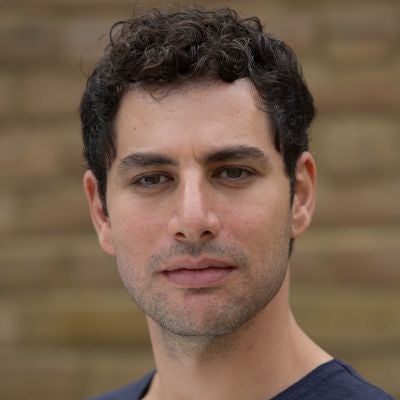
Tareq Baconi
Tareq Baconi is a writer. He is the author of Hamas Contained: The Rise and Pacification of Palestinian Resistance (Stanford University Press, 2018). His writing has appeared in the London Review of Books, the New York Review of Books, the New York Times, the Washington Post, among others. He is the former senior analyst for Israel/Palestine at the International Crisis Group based in Ramallah. He serves as the president of the board of Al-Shabaka: The Palestinian Policy Network.
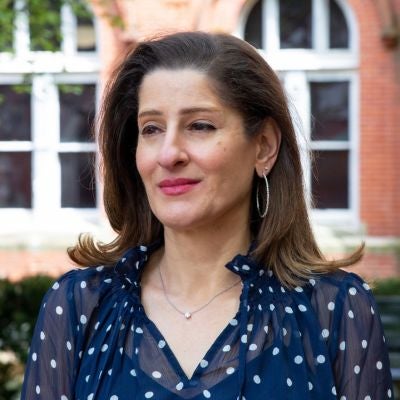
Marwa Daoudy
Dr. Marwa Daoudy is an associate professor of international relations at Georgetown University’s School of Foreign Service (SFS) and the Seif Ghobash Chair in Arab Studies at the Center for Contemporary Arab Studies (CCAS). Prior to joining Georgetown, Dr. Daoudy was a lecturer at Oxford University, a fellow with the Oxford’s Middle East Center at St. Anthony’s College, and a visiting scholar at Princeton University’s Woodrow Wilson School of Public and International Affairs. Dr. Daoudy’s research and teaching focus on critical and human security studies, environmental politics, climate security, water politics, negotiation theory and Middle East politics. She is the author of two award-winning books, one on water security and negotiations between Syria, Turkey and Iraq (Ernest Lémonon Award, 2005) and the Origins of the Syrian Conflict: Climate Change and Human Security’(CUP, 2020), awarded the International Studies Association (ISA)’s 2020 Harold and Margaret Sprout prize for best books in environmental studies. Dr. Daoudy’s forthcoming book, under contract with Cambridge University Press, reflects on the meaning and implications of climate justice in the Middle East and North Africa. Her research was published in International Affairs, Global Environmental Politics, Wires Water and PLOS Climate, amongst others. Her policy analysis was published in The Lancet, Foreign Affairs, the Council on Foreign Relations, New Security Beat Blog and the Malcolm H. Kerr Carnegie Middle East Center paper series. In 2023-24, she was awarded a Wilson Center Fellowship. In 2022-23, she was a non-resident scholar at the Malcolm H. Kerr Carnegie Middle East Center in Beirut, where she led the climate change, conflict, and governance project.
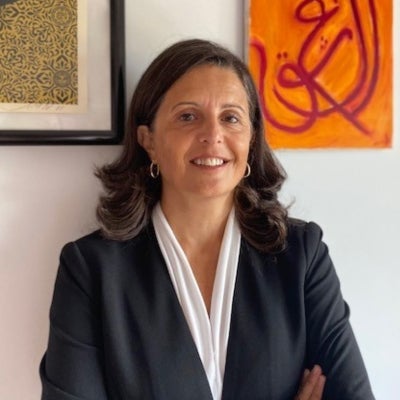
Leila Farsakh
Leila Farsakh is an Associate Professor and Department Chair at University of Massachusetts, Boston. She is the author of Palestinian Labor Migration to Israel: Labour, Land and Occupation, (London: Routledge, second edition, 2012) and has published on questions related to the political economy of the Israeli-Palestinian conflict, alternative to partition, and international migration in a wide range of academic journals, including the Middle East Journal, the European Journal of Development Research, Ethnopolitics, the International Feminist Journal of Politics, Journal of Palestine Studies and Le Monde Diplomatique. She has also worked with a number of international organizations, including the Organization for Economic Cooperation and Development (OECD) in Paris and since 2008 has been a senior research fellow at the Center for Development Studies at Birzeit University, in the West Bank. In 2001 she won the Peace and Justice Award from the Cambridge Peace Commission, in Cambridge-Massachusetts.
Raja Khalidi
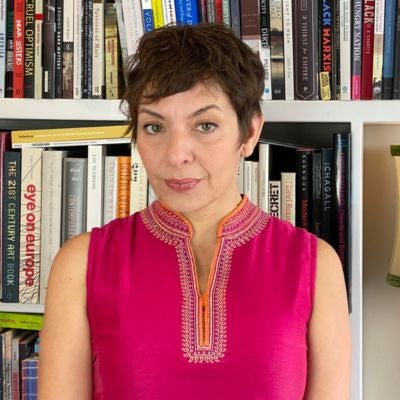
Sherene Seikaly
Sherene Seikaly is Associate Professor of History at the University of California, Santa Barbara. Her book Men of Capital: Scarcity and Economy in Mandate Palestine (Stanford University Press, 2016) explores economy, territory, the home, and the body. Her forthcoming book, From Baltimore to Beirut: On the Question of Palestine tells a global history of capital, slavery, and dispossession. She is the Editor of Journal of Palestine Studies, Director of the Center for Middle Eastern Studies at UCSB, co-editor of the Stanford Studies Middle Eastern and Islamic Societies and Cultures Series, and co-editor of Jadaliyya.